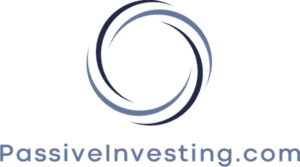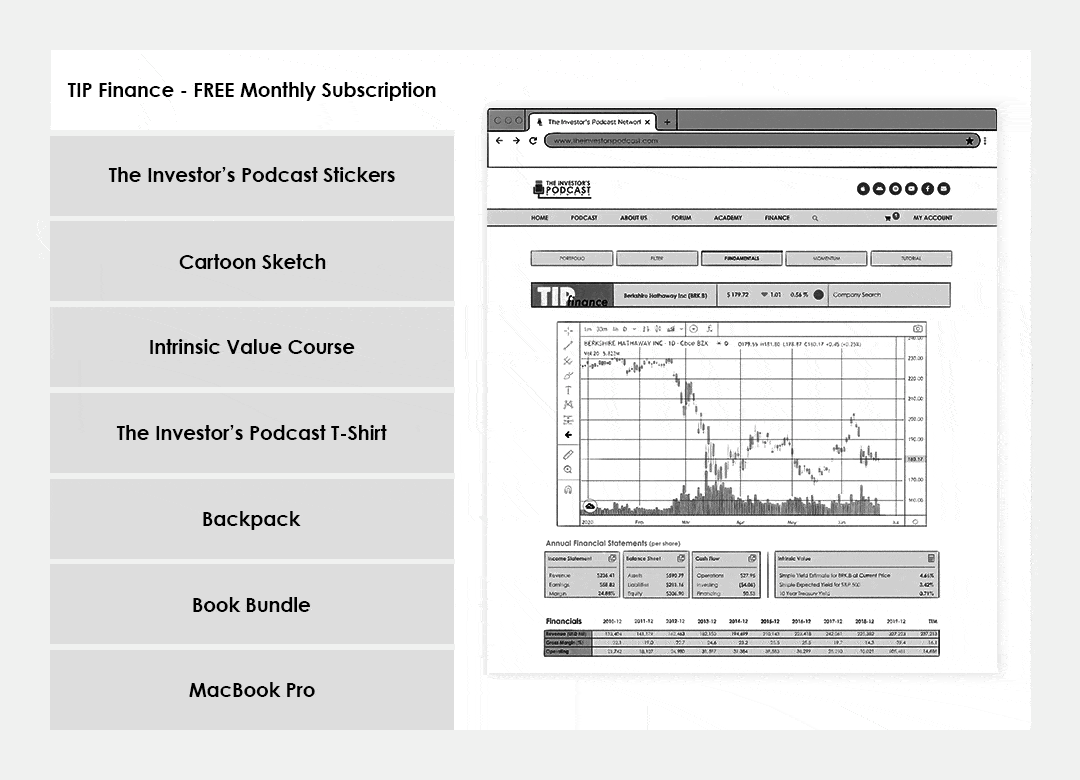Solar Boom
31 August 2022

Hi, The Investor’s Podcast Network Community!
Welcome back to We Study Markets!
Thank you to all our readers who wrote in with advice for Patrick’s wedding — We’ll try to provide some updates on how it all goes next month.
Now, back to our regularly scheduled programming.
While the labor market showed its strength yesterday, mass layoff anecdotes continue to permeate across Wall Street.
The latest is SNAP which is expected to terminate 20% of its total staff. Our Gen Z inside sources have speculatively attributed this to the rise of Tik Tok and BeReal. The stock’s 80% year-to-date decline probably hasn’t helped either.
🔥 Preliminary August inflation reports in the Eurozone came in hotter than expected at 9.1% and, like in the U.S., markets are increasingly discounting a 75 basis point rate hike instead of a 50 point hike in response.
Here’s the market rundown for today:

*All prices as of market close at 4pm EST
Stocks fell for the fourth straight day with another big downturn in oil and gold while Treasury bond yields moved higher. The S&P is now off 8% from its recent peak.
Today, we’ll discuss Buffett’s latest moves, a huge solar investment, new payroll data, and a breakdown of the shadow money system.
All this, and more, in just 5 minutes to read.
Let’s do it! ⬇️
IN THE NEWS
✂️ Buffett Trims Shares in China’s BYD (Reuters)
Explained:
- Recent speculation that Berkshire Hathaway (BRK.A) might sell its entire multi-billion dollar stake in China’s largest electric car company, BYD, sent its shares down 12% in July.
- It was recently confirmed that the company has begun to reduce its holdings in its BYD investment, although Berkshire still owns 19.92% of the company’s H shares. Berkshire said it sold over 1.33 million shares of the Hong Kong-listed shares worth $47 million.
What to know:
- Berkshire paid $232 million in 2008 for its stake in BYD. That value had grown to about $7.5 billion as of Tuesday.
- Buffett said his partner, Charlie Munger, was the impetus for the investment in the automaker.
- Electric car sales in China have risen in recent months, allowing BYD to overtake Tesla (TLSA) as the world’s largest seller of electric vehicles.
☀️ First Solar Will Spend $1.2 Billion To Expand US Production (NYT)
Explained:
- First Solar (FSLR) announced on Tuesday that it would invest up to $1.2 billion to build a fourth factory in the U.S., largely due to the energy and climate bill Congress passed this month that expands incentives for renewable energy.
- The solar panel manufacturer, based in Tempe, Arizona, said its expansion plans would create 1,000 new jobs.
What to know:
- Demand for First Solar’s panels has been growing, which use a thin film material rather than the crystalline silicon used in most panels.
- President Biden’s Inflation Reduction Act authorizes hundreds of billions of dollars in federal tax credits, grants, and loans to encourage the use of renewable energy to combat climate change.
- Solar businesses stand to benefit greatly from the bill. First Solar’s CEO Mark Widmar said, “This investment is an important step toward achieving self-sufficiency in solar technology, which, in turn, supports America’s energy security ambitions, its deployment of solar at scale, and its ability to lead with innovation.”
💼 Private Employment Job Creation Slows (CNBC)
Explained:
- ADP (ADP), the nation’s largest payroll processor, debuted a new indicator of private-sector payrolls based on its own massive client base, which extrapolates data based on workers added or cut, and paychecks sent.
- The indicator showed private employers slowing the pace of hiring due to growing concerns of an economic slowdown. 132,000 jobs in August were added, a decline from the 270,000 added in the previous month.
- The ADP report also provided wage information and showed that annual pay rose 7.6% for the month, adding to inflation worries.
What to know:
- The official government jobs report from August will be released this Friday. If it shows a similar decline in new jobs added as the ADP report, both the Fed and Biden would welcome the news as it could indicate that high job growth is ending and, perhaps, inflation will become closer to the Fed’s target.
- ADP’s chief economist Nela Richardson said, “We could be at an inflection point, from super-charged job gains to something more normal.”
- From a sector standpoint, services-related industries accounted for most of the job growth, with 110,00 new positions.
FEATURED SPONSOR
Stock investing is great, and it’s likely right for a portion of your portfolio, but it’s hard to beat truly passive income — mailbox money, as some call it. To make sure you’re investing with a great management team, learn the 7 Red Flags for Passive Real Estate Investing.
DIVE DEEPER: DECODING THE EURODOLLAR SYSTEM

While we hear a great deal about the Fed’s role in the economy through manipulating interest rates and the price of money, this is notably meant in reference to dollars held in deposit at banks located in the United States.
Although the ramifications are quite global, the Fed’s job is a domestic one, at least according to its founding mandate from Congress, which requires the central bank to balance full employment with low inflation in the United States.
But, as we’ve also discussed, the dollar is the world’s reserve currency, and it underpins the global economy, so what is there to be said of this complex web of dollar use internationally that excludes the dollar’s shepherd, the Federal Reserve?
Warning, this is nerdy stuff — read at your own risk 😅
Breaking it down
This question directs us towards a topic commonly referred to as the eurodollar system.
The terminology is confusing, but it really has nothing to do with the euro or exchanging euros for dollars, or anything like that.
A eurodollar refers to dollar-denominated deposits held outside of the U.S. in foreign banks or overseas branches of American banks.
This means they’re not subject to regulations from the Federal Reserve Board, such as reserve requirements, nor are they insured by the FDIC.
Origin
While the name stems from the fact that most unregulated deposits of U.S. dollars abroad were in Europe, these deposits can be found today in places like the Bahamas and the Cayman Islands.
And the eurodollar market dates back to the conclusion of World War II, when the U.S. provided huge funds of dollars to Europe to promote economic recovery which, then, began circulating widely.
Interestingly, eurodollars even have their own international capital markets that act as a steady supply of dollar liquidity for foreign banks.
Additionally, there are actually futures markets based on eurodollars, and on a short-term basis, these broadly track the Fed funds rate, while longer maturities track the London Interbank Offered Rate (LIBOR).

More to the story
Jeff Snider, the Chief Strategist at Atlas Financial who also runs Eurodollar University, is sort of the de facto authority on this topic, and he describes it generally as the “shadow money system” that drives the world economy.
In essence, the eurodollar system, which accounts for the majority of the flows and uses of dollars globally, happens outside of the control of U.S. authorities.
What this means is that much of the global dollar-based lending (and therefore increases in the supply of money), occurs outside of the U.S. government’s domain.
Jeff has argued that, in reality, the U.S. dollar itself (as controlled by the Federal Reserve) isn’t actually the global reserve currency, but the eurodollar system, which enables international banks operating outside of the Fed to create U.S. dollars through lending, is the real reserve currency.
Wait, what?
He explains that over the past few decades, the entire global economy has become quite intricately linked through this offshore dollar system, yet its extensive ramifications are poorly understood by central bankers who are left playing defense against its decentralized whims.
Central bankers, though, would for the sake of the system’s stability, like us to believe that they’re in control of the global monetary system, at least according to Snider.
In Snider’s words
“I like to use the term shadow money, because they’re actually monetary forms that don’t show up in any of the statistics. They don’t show up in any regulatory discussions.
They’re not involved in any of the mainstream policy frameworks, because, this is outside the United States, it’s outside of every regulatory regime on earth and regulators are not too keen about people knowing about this vast, huge monetary system existing outside of their reach…”
His thinking stands in sharp contrast to what we’re commonly taught in school and in much of the finance world, and Snider’s arguments state that international bankers are the ones broadly in charge of the dollar’s supply globally.
What to know
The logic Snider seeks to convey really boils down to his belief that the eurodollar system has evolved far beyond the simplistic system of foreign dollar deposits we outlined initially.
The definition of money itself has changed dramatically in this system, as vast repo markets for extending credit and exchanging interbank liabilities through complex transactions and rehypothecation have developed.
Snider says, “we’re really talking about, for example, Deutsche Bank creating US dollar liabilities by offering currency swaps on a market in Hong Kong, which HSBC then re-lends to Mitsubishi in Tokyo, that then gets repoed out to the Agricultural Bank of China so that some Chinese corporate can purchase raw materials on global markets.”
This is the shadow money system, as such lending and dollar swaps all occur outside the purview of U.S. officials who would otherwise like to be monitoring their currency’s uses.
Because of this, Snider believes, then, that the Federal Reserve has very little influence over interest rates. Instead, the Fed primarily acts in response to the natural expansions and contractions of credit in this global shadow money system.
Wrapping up
There’s so much more here to discuss, and Snider is a strong contrarian arguing against the status quo’s understanding of the international financial system.
These topics get deeply convoluted quite quickly, though, and we won’t pretend to do his arguments any justice.
To learn more about Jeff Snider’s worldview, you can listen to our We Study Billionaires interview with the macro expert here.
WHAT WE’RE READING
Your authors are avid readers, like everyone who works at The Investor’s Podcast, and we wanted to share more about our latest literary endeavors.
💭 Shawn: I just finished Mohnish Pabrai’s The Dhando Investor. A truly wonderful explanation of deep value investing and the legendary investor’s outlook on the world. Currently, I’m reading Market Wizards by Jack Schwager, which was kindly gifted to me by my co-writer, Patrick.
If you didn’t know, part of my job is to read books — I make book review videos on our main YouTube channel. Check out this one I did recently on Jim Collins’ Good to Great ;)
💭 Patrick: I’m currently reading Baruch: My Own Story, though I’m almost finished. For my honeymoon in Hawaii, I’ll be reading, appropriately, The Art Of The Good Life which was thoughtfully sent to me by Stig Brodersen.
We Study Markets readers, let us know — What books should we add to our wishlist?
SEE YOU NEXT TIME!

That’s it for today on We Study Markets!
Before you sign off for today, if you haven’t taken a moment to fill out reader survey yet, please do so and help us and fill it out.
See you later!
If you enjoyed the newsletter, keep an eye on your inbox for them on weekdays around 6pm EST, and if you have any feedback or topics you’d like us to discuss, simply respond to this email.








